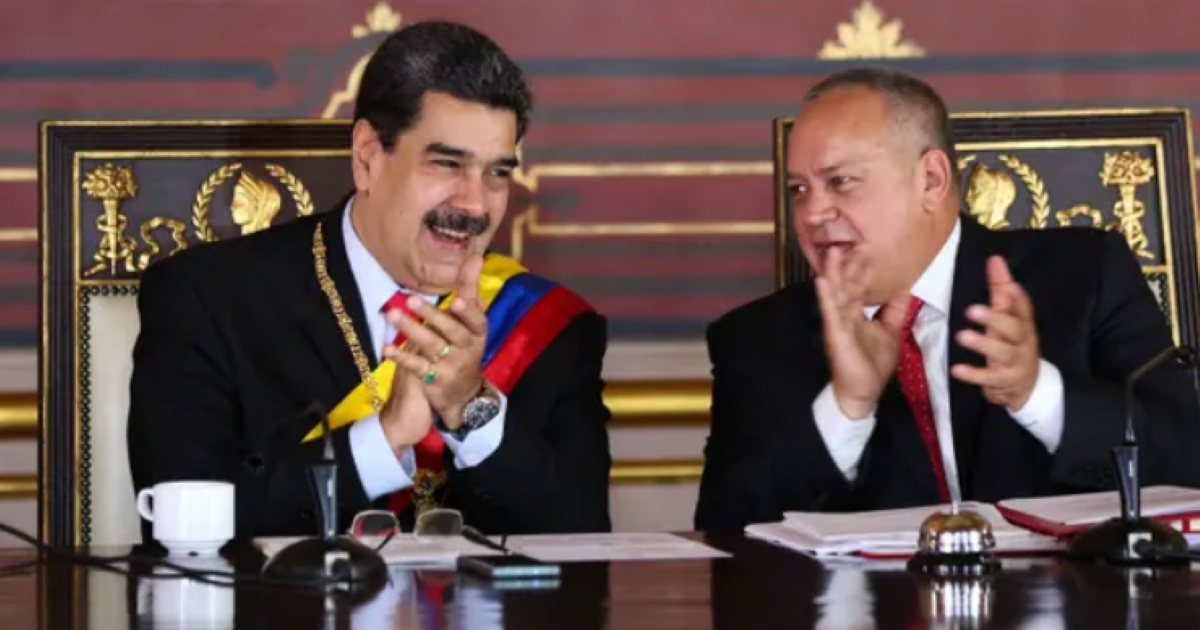CARACAS.- Less than two months before the presidential election scheduled for July 28, the Nicolás Maduro regime continues to advance in the discussion and approval of legal instruments that allow it to control – and even prevent – the work of non-governmental organizations that defend human rights. and politicians in the country, in addition to significantly limiting the right to association of any group of citizens.
On May 21, the National Assembly – largely dominated by deputies loyal to the Maduro government – began the final approval of the Law on Supervision, Regularization, Performance and Financing of Non-Governmental Organizations (NGOs) and Non-Profit Social Organizations, legislation defined by human rights defenders as the Anti-society Law.
This legal instrument was approved in the first discussion in January 2023. From that moment on, the Maduro government paralyzed its discussion as a result of international criticism against the content of the legislation until last May 20, 2024, number two of the Venezuelan regime, Diosdado Cabello, announced that the discussion and approval of the legislation that grants the Maduro government powers to open administrative procedures against non-governmental organizations that could result from the suspension of their activities to their dissolution would be resumed.
uncomfortable NGOs
Alí Daniels, director of the organization Acceso a la Justicia, maintains that “the State does not want non-governmental organizations that protect human rights, that denounce in the International Criminal Court, it does not want uncomfortable NGOs”
However, the majority of the deputies of the United Socialist Party of Venezuela (PSUV) emphasize the need to regulate the international financing received by social organizations in the country.
For example, Cabello insists that at least 62 non-governmental organizations in Venezuela receive resources to inject into political parties and finance terrorist activities against the country. We must legislate to stop this activity.”
However, Daniels explains that, although “the law’s excuse is the issue of financing, there are only three articles on this topic and there are more than 30, so whatever you have the rest of the articles on. The danger is that this law will be used for the purposes of persecution and sanction of organizations, because it first establishes the rule that those that are already established have to register again and from there the government can request requirements and legalize only those organizations that you consider least annoying.”
In the analysis by the legal experts of Access to Justice on the content of the Anti-society Law that is still being discussed in the Venezuelan Parliament, it is indicated that the legislation can be summarized as follows: “To exercise and defend rights, the long road to repress them and annul organizations the short”
They maintain that of the 41 provisions contained in the project, “14 have punitive content, either because they establish penalties or because they refer to factual assumptions to be sanctioned (…) 34% of the project has punitive content, and there are also very few of them. the regulations that contain recognition of rights or benefits for organizations. This highlights the real objective of the project, whose greater weight is in the establishment of obligations for civil society organizations and acts to be sanctioned than in facilitating and guaranteeing freedom of association.
In relation to the prohibition of registering and allowing “fascist” organizations to operate in the country, Acceso a la Justicia makes the following warning: “In principle, we agree that the constitution of fascist organizations, as well as any other type of association that promotes authoritarianism, racial discrimination or justifies violence, but in the current context this is extremely dangerous to the extent that the draft Law against Fascism, Neo-Fascism and other Similar Expressions is considered as such to concepts that do not correspond to it, since an allusion is made to the fact that those who have morally conservative ideas are fascists, as well as those who have neoliberal ideas and those who denigrate democracy and institutions, with such vagueness that enormous layers of the “The country’s population may be subject to persecution because of this law if it is approved.”
In this sense, Acceso a la Justicia believes that “the inclusion of this article may lead to the dissolution of an organization simply for criticizing the Government or proclaiming, for example, liberal ideas.”
civic setback
Rafael Uzcátegui, director of the Peace Laboratory, maintains that the law to regulate NGOs can have 98% of politically correct words, but the arbitrary and unilateral interpretation of the remaining 2% will suffice – as has happened, for example, with the “Law against hate” – so that it means what it is: A major setback in civic space in the country.
According to Uzcátegui, that 2% refers to the mandatory nature of a new registration for all organizations created before the law, regardless of their history. For this registration, they must “adjust their bylaws” to the provisions of the new standard, including the obligation to present “accounting balances, financial statements and books that, in accordance with the legislation, must be maintained and a list of donations received with full identification of the donors.” , indicating whether they are national or foreign, accidental or permanent. Failure to comply will “result in the nullity of the organization’s registration.”
According to Uzcátegui, this law “will mean the coup de grace for the exercise of the right to freedom of assembly and association in Venezuela.”
@Puzkas


